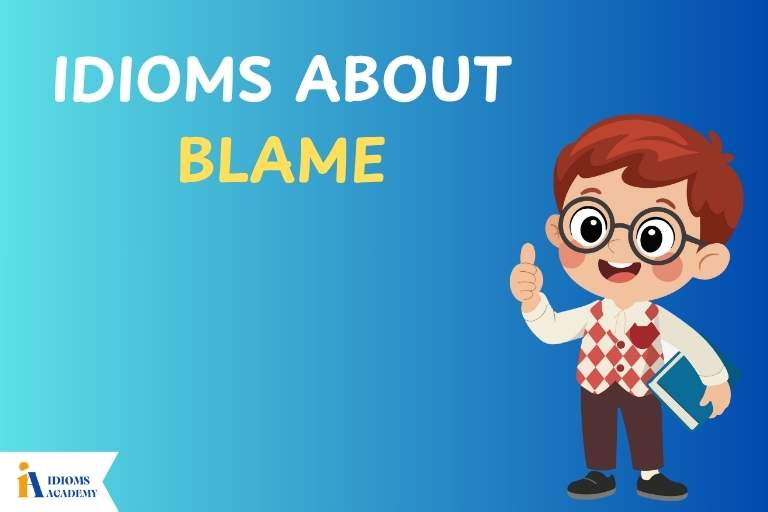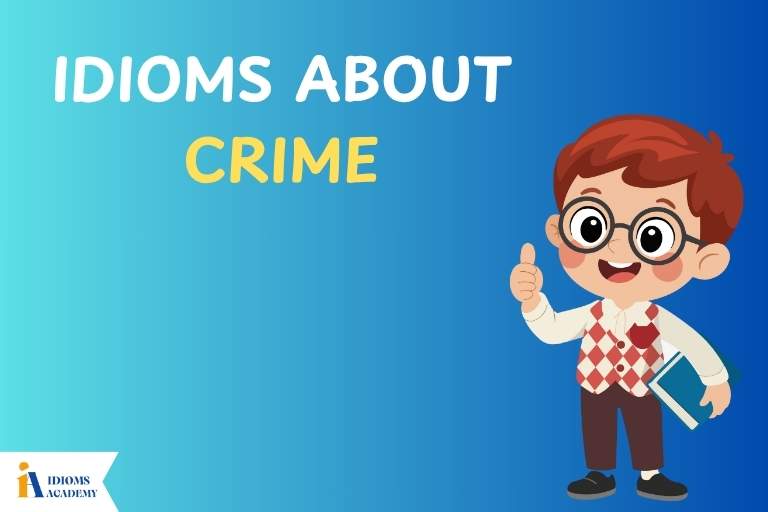Journalism is the way we learn about what’s happening around the world. It helps us know the truth about people, places, and events. News reporters, writers, and photographers all work hard to share stories. But when they talk about their work, they often use special phrases. These phrases are called idioms. Idioms are fun ways of saying something that doesn’t always mean what the words say. For example, if a reporter says they “broke the story,” they didn’t actually break anything.
Idioms make journalism sound more exciting. They help people explain their jobs in creative ways. If you want to understand news stories better, it’s helpful to know these idioms. In this article, we’ll learn 25 idioms about journalism. We’ll see what they mean, how to use them, and where they come from. Let’s get started.
Idioms About Journalism
1. Break the story
Meaning: To be the first to report news
Example Sentence:
– The reporter broke the story about the mayor’s surprise visit.
– That station broke the story before anyone else even knew.
Other ways to say: Report first, reveal the news
Fun Fact/Origin: Comes from the idea of “breaking” news open so everyone can see it
Usage: Used when someone is first to tell the public important news
2. Hot off the press
Meaning: News that was just printed or released
Example Sentence:
– I got the paper hot off the press this morning.
– This news is hot off the press—it just happened!
Other ways to say: Just released, very new
Fun Fact/Origin: Comes from printing presses that are hot when printing papers
Usage: Used to describe very recent news
3. In black and white
Meaning: Something written clearly, often in print
Example Sentence:
– It’s right there in black and white in the newspaper.
– I need to see it in black and white before I believe it.
Other ways to say: Clearly written, on paper
Fun Fact/Origin: Refers to newspapers printed with black ink on white paper
Usage: Used when people want written proof or facts
4. Spin the story
Meaning: To tell the story in a way that makes someone look better
Example Sentence:
– The company tried to spin the story to avoid blame.
– She spun the story to make her team look good.
Other ways to say: Twist the truth, change the message
Fun Fact/Origin: “Spin” means turning something, like turning the meaning
Usage: Used when someone tells news in a way that helps them
5. Scoop
Meaning: A piece of news no one else has yet
Example Sentence:
– The reporter got the scoop on the new school rules.
– Everyone wanted the scoop about the big concert.
Other ways to say: Exclusive news, inside story
Fun Fact/Origin: Comes from “scooping” something up before others do
Usage: Used when someone has special or first information
6. Hit the headlines
Meaning: To be in the news for something big
Example Sentence:
– The basketball team hit the headlines after their win.
– That rescue dog hit the headlines last week.
Other ways to say: Made the news, became famous
Fun Fact/Origin: Headlines are big titles in the newspaper
Usage: Used when someone or something becomes news
7. Off the record
Meaning: Something shared privately, not to be published
Example Sentence:
– She told the reporter something off the record.
– This is off the record, so please don’t share it.
Other ways to say: Secret, private
Fun Fact/Origin: Reporters can’t use info that is off the record
Usage: Used for things that shouldn’t be made public
8. On the record
Meaning: Something a reporter can use in a story
Example Sentence:
– He said it on the record during the interview.
– The mayor’s words were on the record.
Other ways to say: Public, allowed to be shared
Fun Fact/Origin: Opposite of “off the record,” this is open for news
Usage: Used when someone gives permission to share info
9. News travels fast
Meaning: People hear about things quickly
Example Sentence:
– News of the school closing traveled fast.
– She got famous overnight—news travels fast!
Other ways to say: Word spreads quickly, everyone knows fast
Fun Fact/Origin: Comes from how fast stories move from person to person
Usage: Used when information spreads quickly
10. Stop the presses
Meaning: Something urgent happened that must be printed right away
Example Sentence:
– Stop the presses! A big storm is coming!
– They had to stop the presses for the big story.
Other ways to say: Print new story, hold the paper
Fun Fact/Origin: Comes from old printing days when machines were stopped to change the story
Usage: Used when breaking news changes the plan
11. Above the fold
Meaning: Important story placed on the top half of the front page
Example Sentence:
– The school parade made it above the fold in the local paper.
– Her award was featured above the fold.
Other ways to say: Front and center, top story
Fun Fact/Origin: Newspapers are folded, and top stories go “above the fold”
Usage: Used when something is very important or gets main attention
12. Run a story
Meaning: To publish or print a news article
Example Sentence:
– The paper ran a story about the science fair.
– They ran a story about the city’s new park.
Other ways to say: Publish, print a report
Fun Fact/Origin: Comes from how newspapers “run” stories on their pages
Usage: Used when news is officially shared or printed
13. Cover the story
Meaning: To report on an event
Example Sentence:
– A reporter came to cover the school play.
– They’re covering the weather changes this week.
Other ways to say: Report on, write about
Fun Fact/Origin: “Cover” means to watch or report the whole event
Usage: Used when journalists report on something from start to end
14. The press
Meaning: All the people who write and report news
Example Sentence:
– The press came to the sports event.
– She answered questions from the press.
Other ways to say: The media, reporters
Fun Fact/Origin: Comes from printing presses used to print newspapers
Usage: Used when talking about journalists or news workers
15. Beat reporter
Meaning: A journalist who covers a certain topic regularly
Example Sentence:
– He’s the school beat reporter for the newspaper.
– The city beat reporter wrote about traffic again.
Other ways to say: Assigned reporter, regular topic writer
Fun Fact/Origin: “Beat” means the area or subject a reporter always works on
Usage: Used when a journalist focuses on the same type of stories
16. Dateline
Meaning: The line in a news story showing where and when it was written
Example Sentence:
– The dateline said the news was from New York.
– The story had a dateline from last night.
Other ways to say: News tag, place and time line
Fun Fact/Origin: This helps readers know the story’s location and time
Usage: Found at the start of many newspaper articles
17. Get the facts straight
Meaning: To make sure the details are true
Example Sentence:
– A good reporter always gets the facts straight.
– Let’s get the facts straight before we write.
Other ways to say: Check the truth, confirm details
Fun Fact/Origin: News must be accurate, so checking facts is key
Usage: Used when talking about being careful with information
18. Off the presses
Meaning: Just printed or just finished
Example Sentence:
– The new issue is fresh off the presses.
– We got the paper right off the presses.
Other ways to say: Newly printed, just made
Fun Fact/Origin: Refers to newspapers printed and still warm from the press
Usage: Used when something has just come out
19. Make headlines
Meaning: To do something big that appears in the news
Example Sentence:
– The student hero made headlines after saving a dog.
– That act of kindness made headlines across the town.
Other ways to say: Got in the news, became well-known
Fun Fact/Origin: Headlines are big and bold, showing top news
Usage: Used when a person or event becomes very important
20. Eye-catching headline
Meaning: A title that grabs attention
Example Sentence:
– The eye-catching headline made me want to read the story.
– Newspapers use bold words for eye-catching headlines.
Other ways to say: Attention-grabbing title, bold headline
Fun Fact/Origin: Big letters and strong words help readers stop and read
Usage: Used when describing headlines that stand out
21. Front-page news
Meaning: Very important or big news
Example Sentence:
– The new school was front-page news.
– Her invention was front-page news in the town paper.
Other ways to say: Top story, main news
Fun Fact/Origin: The most important stories go on the first page
Usage: Used when something is major and deserves attention
22. Put a spin on it
Meaning: To tell the story in a way that changes how it sounds
Example Sentence:
– He put a spin on it to make it sound better.
– They put a spin on the news to protect their team.
Other ways to say: Change the view, shift the message
Fun Fact/Origin: Spinning something changes how it looks—same with stories
Usage: Used when stories are told in a way that helps someone’s image
23. No comment
Meaning: Refusing to say anything about a topic
Example Sentence:
– The coach gave no comment after the game.
– The company said no comment about the rumor.
Other ways to say: Refuse to answer, stay silent
Fun Fact/Origin: Common in interviews when people don’t want to talk
Usage: Used when someone doesn’t want to share information
24. Press conference
Meaning: A meeting where someone talks to reporters
Example Sentence:
– The mayor held a press conference this morning.
– A press conference was called after the event.
Other ways to say: Media meeting, news talk
Fun Fact/Origin: Reporters gather to ask questions and get answers
Usage: Used when big announcements are shared with the press
25. Byline
Meaning: The name of the person who wrote the article
Example Sentence:
– The byline says the article was written by Sarah.
– He saw his name in the byline for the first time.
Other ways to say: Writer credit, author name
Fun Fact/Origin: Usually found under the headline or title
Usage: Used when giving credit to the reporter or writer
Quiz: Idioms About Journalism
Instructions: Read each question and the answer choices carefully. Pick the letter that best matches the meaning of the phrase or expression.
Question Key
1. What does “break the story” mean?
A) To stop a story from being printed
B) To tell a story that has been told before
C) To be the first one to report news
2. If news is “hot off the press,” what does it mean?
A) The news is very old
B) The news just got printed or released
C) The news is from another country
3. What does “off the record” mean?
A) Something that should be recorded
B) A private statement that should not be shared
C) A story told in the newspaper
4. What does it mean if a story “hit the headlines”?
A) It got ignored by everyone
B) It became a very big and popular story
C) It was removed from the news
5. If someone is a “beat reporter,” what do they do?
A) They write about random things
B) They make news stories up
C) They write about the same topic all the time
6. What does “above the fold” mean in newspapers?
A) The story is at the very end of the paper
B) The story is placed on the bottom of the page
C) The story is placed at the top of the front page
7. What is a “byline”?
A) A short title of the article
B) The name of the person who wrote the story
C) A sentence that ends the article
8. If someone says “get the facts straight,” what are they saying?
A) Make sure the information is correct
B) Write as fast as you can
C) Make the story funnier
9. What happens at a “press conference”?
A) Reporters play games
B) People gather for a dance
C) Someone answers questions from reporters
10. What does “put a spin on it” mean?
A) To ride a bicycle
B) To tell a story in a way that changes how it sounds
C) To tell the same story over and over
Answer Key
- C) To be the first one to report news
- B) The news just got printed or released
- B) A private statement that should not be shared
- B) It became a very big and popular story
- C) They write about the same topic all the time
- C) The story is placed at the top of the front page
- B) The name of the person who wrote the story
- A) Make sure the information is correct
- C) Someone answers questions from reporters
- B) To tell a story in a way that changes how it sounds
Wrapping Up
Journalism uses many idioms to talk about stories, news, and writing. These phrases help people explain what happens in the news in fun and clear ways. When you hear someone say “break the story” or “above the fold,” now you’ll know what they mean. These idioms are part of how reporters talk every day. Learning them makes understanding the news much easier.
Want to talk like a reporter? Try using a few of these idioms the next time you read or talk about the news.




